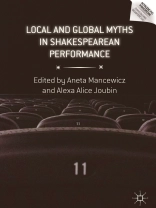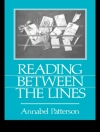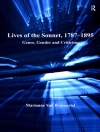This collection of scholarly essays offers a new understanding of local and global myths that have been constructed around Shakespeare in theatre, cinema, and television from the nineteenth century to the present. Drawing on a definition of myth as a powerful ideological narrative,
Local and Global Myths in Shakespearean Performance examines historical, political, and cultural conditions of Shakespearean performances in Europe, Asia, and North and South America. The first part of this volume offers a theoretical introduction to Shakespeare as myth from a twenty-first century perspective. The second part critically evaluates myths of linguistic transcendence, authenticity, and universality within broader European, neo-liberal, and post-colonial contexts. The study of local identities and global icons in the third part uncovers dynamic relationships between regional, national, and transnational myths of Shakespeare. The fourth part revises persistent narratives concerning a political potential of Shakespeare’s plays in communist and post-communist countries. Finally, part five explores the influence of commercial and popular culture on Shakespeare myths. Michael Dobson’s Afterword concludes the volume by locating Shakespeare within classical mythology and contemporary concerns.
Inhoudsopgave
1. Introduction.- Part I Myths of Linguistic Transcendence, Authenticity, Universality.- 2. “Europe Speaks Shakespeare”: Karin Beier’s 1996 A Midsummer Night’s Dream, Multilingual Performance and the Myth of Shakespeare’s Linguistic Transcendence.- 3. The Myth of Shakespearean Authenticity: Neoliberalism and Humanistic Shakespeare.- 4. Shamanistic Shakespeare: Korea’s Colonization of Hamlet.- Part II Myths of Local Identities and Global Icons.- 5. Ludwig Tieck and the Development of the Romantic Myth of a “German Shakespeare”.- 6. Shakespeare Beyond the Trenches: The German Myth of unser Shakespeare in Transnational Perspective.- 7. “Tupi or Not Tupi, That Is the Question”: Brazilian Mythical Afterlives of Shakespeare’s Hamlet.- Part III Myths of Political Shakespeare.- 8. Hamlet and the Fall of Berlin Wall: The Myth of Interventionist Shakespeare Performance.- 9. Denmark’s a Prison: Appropriating Modern Myths of Hamlet After 1989 in Lin Zhaohua’s Hamulaite and Jan Klata’s H.- 10. Hamlet in Times of War: Two Appropriations of Shakespeare’s Tragedy in Former Yugoslavia in the 1990s.- 11. “Come, Let’s Away to Prison”: Local and Global Myths, and “Political Shakespeare” in Twenty-First Century Russia.- Part IV Shakespeare as Myth in Commercial and Popular Culture.- 12. Localizing a Global Myth: Contemporary Film Adaptations of King Lear.- 13. Shakespeare Sanitized for the Present: Political Myths in Recent Adaptations.- 14. The Myths of Bold Visual and Conservative Verbal Interpretations of Shakespeare on Today’s Japanese Stage.- 15. Afterword: Shakespeare and Myth.
Over de auteur
Aneta Mancewicz is Lecturer in Drama and Theatre Arts at the University of Birmingham, UK. She works on Shakespearean performance, intermediality, and European theatre. Her book publications include Intermedial Shakespeares on European Stages (Palgrave Macmillan, 2014) and Biedny Hamlet [Poor Hamlet] (2010).
Alexa Alice Joubin is Professor of English at George Washington University, USA where she serves as founding Co-director of the Digital Humanities Institute. She held the Fulbright Distinguished Chair in Global Shakespeare at Queen Mary University of London and University of Warwick, UK. At Middlebury College, she holds the John M. Kirk, Jr. Chair in Medieval and Renaissance Literature.












